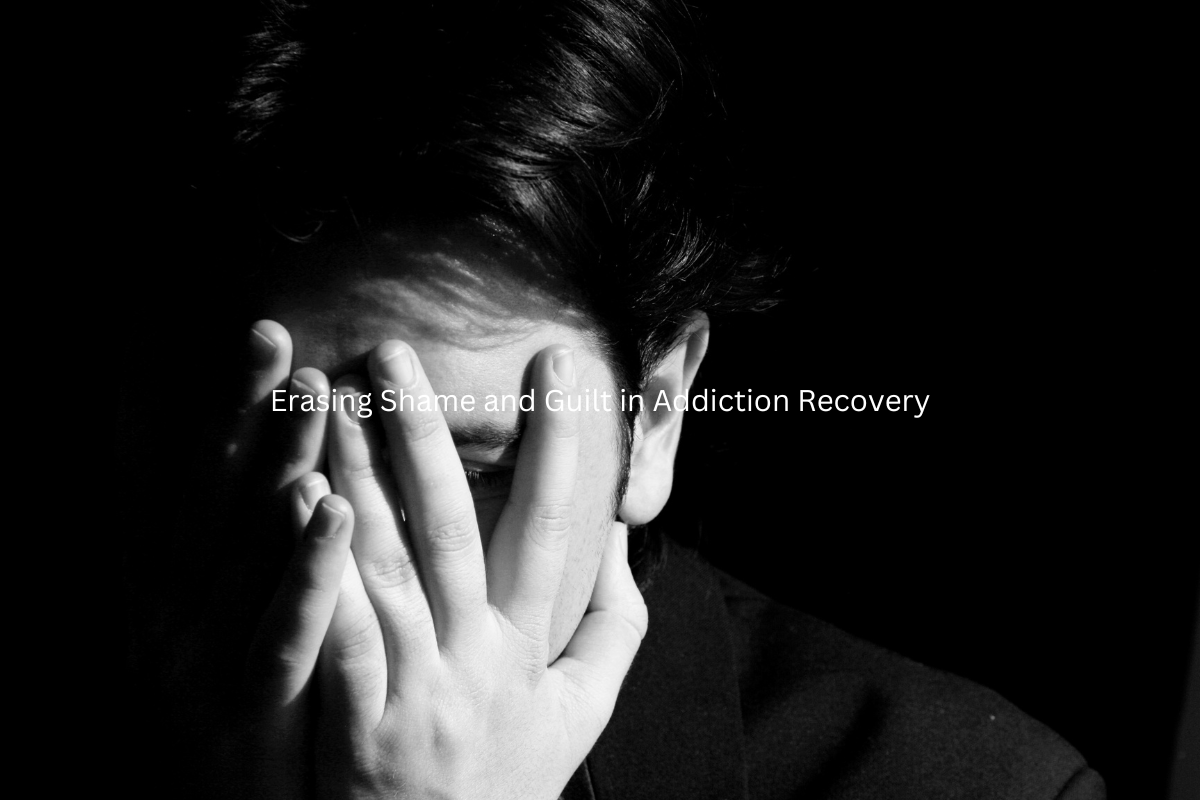
Erasing Shame and Guilt in Addiction Recovery
Dealing with addiction and going through recovery is an emotional rollercoaster that can leave people feeling guilty. The guilt and shame that go along with addiction are normal but need to be overcome to be able to move forward. To lead a healthy life, each person needs to erase shame and guilt in addiction.
As we explore the issue of shame and guilt, we’ll look at ways people can reduce these feelings, think positively, and restart their lives.
Why Do People Feel Guilty in Addiction Recovery?
People dealing with a drug or alcohol addiction, often experience feelings of shame and guilt that are associated with poorer recovery.[1] Shame is a feeling that can happen when you feel like you’ve done something wrong, such as abuse drugs or alcohol.
When you begin to abuse these substances, you can then begin to feel guilty that you’re letting people down in your life. Maintaining responsibilities at work and with your family can be difficult when you’re under the influence. This can lead you to feel guilty about letting people down. Shame and guilt can feed the addiction because they make you feel bad about yourself and often depressed, leaving many to turn to drugs and alcohol to feel better. This is a cycle that often repeats itself until someone seeks help.
During treatment, if guilt in recovery is not addressed and dealt with, a person can not expect to heal from their addiction. They will constantly feel that they’ve done something wrong, hindering their recovery.
What Can be Done to Reduce Guilt in Addiction?
People who are dealing with shame and guilt in addiction and recovery must take steps to overcome these feelings.
Understand the Emotions
Many people can’t understand their emotions, so they’ll have difficulty dealing with them. Researchers who have examined the issue of shame and guilt in recovery have found that therapy can help to regulate these feelings and help people understand them better.[2] Therapy is often recommended to provide a shift in attitude and clarity of the situation.
Acceptance
The past is the past, and it’s important to accept that fact. Accepting what happened can help to erase any feelings of shame or guilt. Understanding mistakes and learning to move forward is important in the recovery process.
Forgiveness
Studies have shown that self-forgiveness in addiction recovery can reduce feelings of shame and guilt.[1] Self-empathy can be an important part of this shift in feelings that can help during recovery. This part of the process can take some time, so patience is important. Working through your issues and understanding your self-worth can help. Without self-forgiveness, it can be extremely difficult to move forward.
To achieve self-forgiveness in recovery, it’s important to:
Stop Putting Yourself Down
You will never achieve self-forgiveness when you continue to put yourself down and treat yourself like your worst enemy. How you talk to yourself can greatly impact how you perceive yourself and how you proceed on your path to recovery.
Practice Self-Care
Self-care is an important part of recovery. Doing positive things for yourself can help you to feel better about yourself and help you on your path to forgiveness. You will feel valued and that you are worthy of forgiveness.
When people can forgive themselves, shame and guilt can be used as a motivator for change. People who can forgive themselves and use these emotions as a catalyst for change can have amazing results.
Getting Help for Addiction at Silver Sands Recovery
At Silver Sands Recovery, we can help people deal with the shame and guilt in addiction recovery. Our addiction treatment programs offer various methods to help people overcome their addictions and lead sober lives. Our facility in Prescott, Arizona provides patients with the tools they need to rid their bodies of addictive substances and learn to live productive lives.
We understand that each patient needs a program that is tailored to their needs. Our team will help to determine the best treatment plan for success.
For more information on the treatment programs we offer at Silver Sands Recovery, call us today or reach out to us online. We are available 24/7 to help.
Sources:
[1] https://pubmed.ncbi.nlm.nih.gov/24159911/
[2] https://www.sciencedirect.com/science/article/pii/S0306460321001398
About the author:

Lisa Waknin is the Founder and Director of Silver Sands Recovery, located in Prescott, Arizona. Lisa started Silver Sands Recovery after immersing herself in the addiction treatment world for several years to figure out what could be done differently to help her daughter and others like her to overcome addiction and stay sober. She believes in a hands-on treatment approach, which includes taking someone out of their environment, providing a 90-day program in a structured environment. During treatment, clients not only recover physically but also learn to live their life again. Lisa is a sought-after expert speaker for recovery support groups, charities, schools, communities, and companies wanting to educate themselves on the explosion of opiate and heroin abuse in our country and the best way to understand, treat, and beat it.




